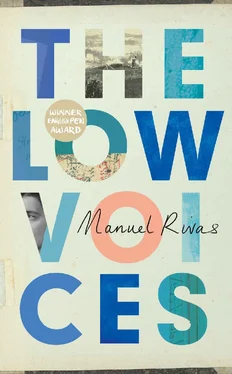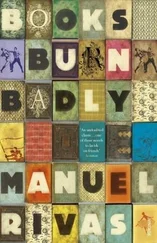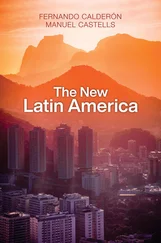Manuel Rivas - The Low Voices
Здесь есть возможность читать онлайн «Manuel Rivas - The Low Voices» весь текст электронной книги совершенно бесплатно (целиком полную версию без сокращений). В некоторых случаях можно слушать аудио, скачать через торрент в формате fb2 и присутствует краткое содержание. Год выпуска: 2016, Издательство: Harvill Secker, Жанр: Современная проза, на английском языке. Описание произведения, (предисловие) а так же отзывы посетителей доступны на портале библиотеки ЛибКат.
- Название:The Low Voices
- Автор:
- Издательство:Harvill Secker
- Жанр:
- Год:2016
- ISBN:нет данных
- Рейтинг книги:5 / 5. Голосов: 1
-
Избранное:Добавить в избранное
- Отзывы:
-
Ваша оценка:
- 100
- 1
- 2
- 3
- 4
- 5
The Low Voices: краткое содержание, описание и аннотация
Предлагаем к чтению аннотацию, описание, краткое содержание или предисловие (зависит от того, что написал сам автор книги «The Low Voices»). Если вы не нашли необходимую информацию о книге — напишите в комментариях, мы постараемся отыскать её.
A brilliant coming-of-age novel from one of Spain’s greatest storytellers,
is a humorous and philosophical take on memory, belonging, and the nature of storytelling itself.
The Low Voices — читать онлайн бесплатно полную книгу (весь текст) целиком
Ниже представлен текст книги, разбитый по страницам. Система сохранения места последней прочитанной страницы, позволяет с удобством читать онлайн бесплатно книгу «The Low Voices», без необходимости каждый раз заново искать на чём Вы остановились. Поставьте закладку, и сможете в любой момент перейти на страницу, на которой закончили чтение.
Интервал:
Закладка:
My father’s absence was never remarked on. It was simply ignored. It was just a strange thing, and there you go. Like belonging to another religion.
My mother took care of the other sacrifices, the poultry and rabbits. It wasn’t her vocation to be a butcher, she did it to give us something to eat. Someone had to do it. One of the worst days of her life was when a beheaded duck wriggled free. The bird carried on flying for a while above our heads. She tried to calm herself down, as well as us: ‘Poor thing! It had a lot of electricity.’
We avoided the theme of sacrifice, but sometimes it turned up unexpectedly and not in the best place. At the table. As happened with the baritone cockerel. It woke us every morning. Time went by. My mother postponed the fatal moment. Until, having given us prior warning, she prepared it for a feast day. We knew she was hurting the most. She wandered about on her own, saying, ‘This is it. Never again!’ My father didn’t eat that day. All of us chewing a musical scale with the rice. From time to time, years later, my father would remember the singer:
‘That cockerel was worth a potosí !’
This was the maximum value my father could assign to anything. A potosí was what the saxophone was worth as well.
My father learned to read music before books. Music theory before his ABC. He learned a few letters, he spent several months at school, but to read and write properly he used his free time doing military service in the barracks in Parga. He was in the band, and it was so cold in winter he used to say, ‘The notes hung frozen in the air.’ According to him, during that glacial period, a cornet got stuck to a note one night and couldn’t be prised away from the lips. We all laughed at this exaggeration, and he said, ‘You’re laughing out of ignorance.’ He was right. The old army barracks in Parga, abandoned today, the huts covered in brambles, fills the eyes with cold, even if you observe it from afar in summer. That boy who from the age of twelve would run from Sigrás to Cambre Bridge, like so many others, to jump on the trains and go to work in the city, by a happy coincidence would learn to play the saxophone. My grandfather the carpenter got him an instrument in exchange for some work he’d done. Manuel worked on site and then attended lessons with a teacher who made a living playing the piano in a nightclub in A Coruña.
From his life as a bricklayer’s mate, my father always recalled the day it occurred to him to heat twenty-four workmen’s pots using some teak planks. They produced a wonderful fire, all embers, no smoke. He was amazed. The building site was in O Recheo. He didn’t realise this wood was worth almost a potosí and the site owner, when he turned up in his white shoes, let fly a curse that shook all the branches in Méndez Núñez Gardens. He expressed his intention aloud: ‘I’m going to barbecue that bricklayer’s mate!’ That day, with the help of his colleagues, my father also disappeared.
He got out of that situation and others. In time, he would make a good builder. Even though, when he was young, the thing he loved best was the saxophone. For years, he combined both jobs — his salary as a builder with his weekend performances at open-air dances and in dance halls. Musicians in A Coruña would congregate around the bar La Tacita de Plata. This is where he met the real heroes of popular emotions. Those who kept the spaces of romance and partying open during that wretched period. He played in prearranged and spontaneous orchestras. This was when musicians got hired by village mayors or the owners of dance halls. The decline of the dance hall, that is what set many musicians back. It was the life of a sparrow. In summer, grain; in winter, the inferno. My father never abandoned his job as a builder. Like the sparrow, he was afraid of winter. As children, we watched him leave with his saxophone after work. He would climb on board a wagon with the other members of the orchestra, often on his way to a remote place, in lands that bordered on León and Asturias. Until that unbearable rhythm got the better of him, like Chaplin in Modern Times , dancing sleepily on an unstoppable machine.

The author’s father, the saxophonist
The builder, the professional amateur, abandoned music. But the saxophone remained. For us children and our mother, it was the house’s secret treasure, dozing in its case on top of the wardrobe, awaiting better times. The saxophone would occasionally come down and alight in my father’s hands. The last time we heard it was at a party on Christmas Eve. My father played paso dobles, boleros and even the odd Christmas carol. My mother killed herself laughing. That evening, I understood, I thought I saw, when and why they fell in love. Here was a man transformed, creating harmonies.
Early one evening, my father arrived in the company of a man with a moustache that formed a kind of horseshoe around his mouth. He was stocky, but trailed his arms, as if he bore the weight of an anatomical tiredness. There was something decadent about him. Both of them were very serious. Silent. My father entered the master bedroom and took the saxophone case down from the wardrobe. We cried. It just happened. María and I started crying. It was a lament for which there was no consolation. The feeling that all the clocks of all times had been broken. My father wasn’t expecting this sense of solidarity with the old saxophone. He stood there, looking perplexed and disturbed. He called us over and said in a serious voice:
‘Do you know why I’m giving it to him? He needs it to make a living.’
We cried, yes, but I think the saddest thing was that man with the dark eyes and the horseshoe moustache. We watched him leave with the black case. Suddenly, he turned around to face us. He put his hand in his pocket and gave us a twenty-five-peseta coin. He then walked down the hill, in the dusk, his body listing to one side, like someone leading a soul by the hand.
8. The Journey to Restless Paradise
THE FIRST IMAGE is that of an old woman dressed in mourning in the window. But she’s not looking at me. I follow the direction of her gaze, and there is a busy man. It’s Farruco, lining up his shoes and boots on top of a wall. He cleans them, polishes them with bitumen or horse fat, and makes them shine with a cloth and brush. He then orders them in pairs, according to their age. There are the shoes of a lifetime, in the Sunday sun.
Gaston Bachelard defined the world painted by Chagall as a ‘restless paradise’. I didn’t know anything then about Bachelard’s poetic philosophy or Chagall’s uneasy village, but I knew this place as a child and grew up there. A paradise where colourful horses ate thorns; harsh, with the name of a battlefield, but true. It was Castro de Elviña.
My father was happy to have built there, with his own hands, what he called in the Venezuelan style a ranchito . A one-storey house on the hillside. He chose to fit the door, which my grandfather had made, on the day of the great snowfall of 1963. He crossed the Monelos river and the railway with the door on his back. There were three of us: my grandfather the carpenter carrying the frame; my father with the door; and the child bringing up the rear, holding a tool, counting their footsteps and trying to step in their footprints. My father had to do it. He had to place the laurel on top. He had to have his own home. But his most precise definition of independence was the following: ‘You have to live somewhere where you can’t hear the neighbour pulling the chain.’
To begin with, Carme, my sister María and I were not at all convinced by this biblical exodus from Monte Alto to another, even taller mountain at the end of a dirt track, with torrents of rainwater and lacking any public transport. To get to the city, you had to cover a large distance across open country to reach the Avenue (Alfonso Molina) and then wait for the Cockroach, the bus that came from the coast, full of people, and did justice to the song ‘La Cucaracha’, which was often sung by the passengers: ‘The cockroach, the cockroach / can no longer walk / because he doesn’t have, because he lacks / four back wheels.’ Very near the bus stop, they had just inaugurated the Coca-Cola factory that would supply the whole of Galicia. A remarkable building for its time, it was a huge glass cube next to the road, surrounded by nature. While waiting for the Cockroach finally to arrive in a splutter, we would gaze in amazement at the unceasing movement of the conveyor belt, where rows of bottles of the potion would enter one side empty and come out the other full, without the presence, so far as we could tell, of any human being. When they talk to me about magical realism, that literary label so abused by lazy critics, the first thing that comes to my mind is that transparent factory and the vision of the bottles filling up on their own, while we waited for the ancient, heaving bus with its embittered engine. The way the Cockroach moved, that was realism. And there was something magical about it too.
Читать дальшеИнтервал:
Закладка:
Похожие книги на «The Low Voices»
Представляем Вашему вниманию похожие книги на «The Low Voices» списком для выбора. Мы отобрали схожую по названию и смыслу литературу в надежде предоставить читателям больше вариантов отыскать новые, интересные, ещё непрочитанные произведения.
Обсуждение, отзывы о книге «The Low Voices» и просто собственные мнения читателей. Оставьте ваши комментарии, напишите, что Вы думаете о произведении, его смысле или главных героях. Укажите что конкретно понравилось, а что нет, и почему Вы так считаете.












